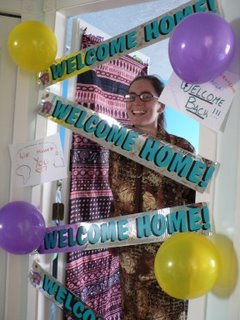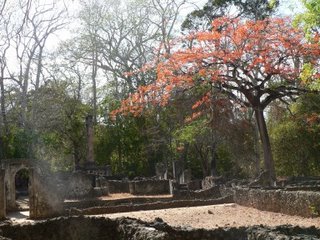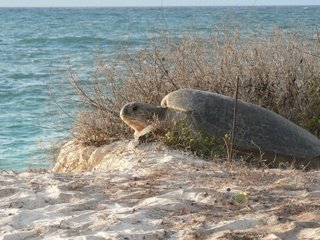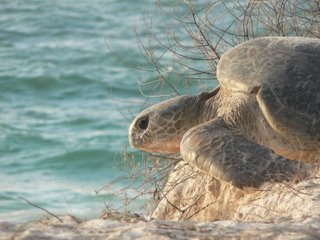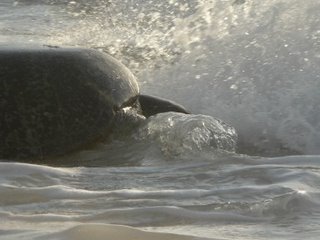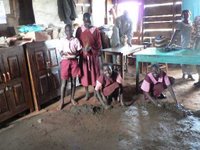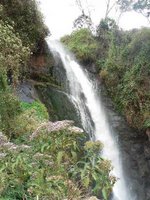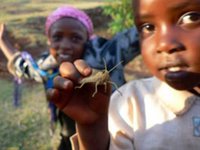There don't seem to be any real towns in Mt Elgon. At least not in any of the areas I went to. Instead, there were a string of trading centers, evenly spaced by 2-3 km all the way to the forest, on both sides of each valley. The trading centre where I lived was called Makutano. I went to a large town called Makutano today in West Pokot district, but these two places should not be confused. They are named the same thing because Makutano means 'crossroads' or something like that...
Makutano in Mt Elgon was a typical centre, with a mill for grinding maize into flour, a barber, a selection of small dukas- either general purpose household goods or an assortment of small dry grocery items- plus fresh eggs, if they were delivered that day by the When you buy eggs they just put them individually into a small plastic bag. To trays. Pray you don't trip on the way home :) The food dukas all have bars on the windows- this is convention everywhere in Kenya. You can also buy sodas from these places, though without electricity anywhere, they will be anything but cold.

There are also a selection of small cafes, all selling the same thing. For 25 cents Canadian I could get a delicious cup of sweet milky chai and an 'andazi' deep fried dough thing. That combination proved to be the lunch of champions many days when we were on the road all day.
I wonder what it will be like when this place gets paved roads and traffic. Right now it is only a few vehicles- transport trucks filled to the brim with the small purple onions they produce in vast quantities for LOW prices while the middlemen got huge profits for transporting the goods for less than one day. (there is a solution- the people could form cooperatives and market their goods together, but instead they just look out for themselves personally and have very little trust for their neighbours- so are reluctant to form partnerships with them. The other vehicles are mainly police.

So, when we walked down the road now we greeted many people... I would collect small children trailing behind in large numbers- like I had a giant 'kid magnet' stuck to my back- and we would compete for the road with goats, cows, a few stray (friendly) dogs and of course donkeys, which are the substitute for transport trucks. They carried water, bamboo from the forest, veggies... If the pace of life changes, this slow meandering from one trading centre to the next will change too.
Not far from our centre was the only health clinic in a few hours walk's radius. It had just very basic facilities. I went there to get some information from the VCT (voluntary counselling and testing centre- for HIV/AIDS). They have a big sign at the road, but unfortunately it's only staff member left, so now the services are not available. If someone gets up the courage to go for an HIV test to find out their status, they need to travel half a day to the district hospital. Not cool. Here's a photo of the reception area. I took it for my sister, who also is a receptionist at a walk-in clinic.

